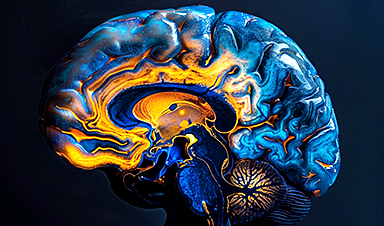- New variants of SARS-CoV-2 are more virulent and transmissible than the original variant of the virus.
- Health experts associate these variants of concern (VOCs) with increased risk of hospitalization, intensive care unit (ICU) admission, and death.
- Vaccination reduces the risks of severe disease and death even with the VOCs.
- However, even with increased vaccination, control measures are needed to reduce the spread of the VOCs.
A Canadian study has found a link between the new variants of SARS-CoV-2, particularly the Delta variant, and an increased risk of severe disease and death.
The retrospective study, by the University of Toronto and appearing in the Canadian Medical Association Journal (CMAJ), looked at 212,326 cases in Ontario from February 7 to June 27, 2021. The study authors compared the risks of hospitalization, ICU admission, and death from the VOCs with those risks from non-VOC SARS-CoV-2 strains.
The researchers screened the cases for Alpha, Beta, Gamma, and Delta VOCs. Non-VOC infections made up 22.4% of the cases. More than three-quarters of the cases were Alpha, Beta, or Gamma, while 2.8% were probably Delta.
Alpha, Beta, and Gamma variants have a mutation that increasesTrusted Source transmission, while Delta has a mutation that increases its ability to replicate.
The authors note that before May 2021, there was no routine screening for the Delta variant, so it is likely that the numbers underestimate the prevalence of this variant.
Increased risk from the Delta variant
The present study found that all VOCs increased people’s risk of hospitalization, ICU admission, and death due to COVID-19.
However, the highest risks were from the Delta variant. In the Delta cases, there was a 108% increase in the risk of hospitalization, a 235% increased risk of ICU admission, and a 133% higher risk of death, compared with the original variant.
These effects were present even when the researchers adjusted the data for factors such as age, sex, vaccination status, and comorbidities.
Prof. William Schaffner, infectious diseases specialist at the Vanderbilt University Medical Center in Nashville, TN, commented:
“This important study from Canada reinforces the serious impact the Delta variant is having. It is well recognized that Delta is more contagious than other virus variants. This new study convincingly reinforces the finding that it also causes more severe disease.”
The Delta variant is now the dominant variant in the European Union, the United Kingdom, and the United States.
The findings of the present study corroborate those of the studies in EnglandTrusted Source, ScotlandTrusted Source, and Singapore that have also shown increased risks from the Delta variant.
Speaking to Medical News Today, Dr. Christopher Coleman, assistant professor of infection immunology at the University of Nottingham in the U.K., highlighted the international relevance of the study.
He said, “Although this [Canadian] study has some limitations, as acknowledged by the authors, this is exactly the kind of study that helps ‘build a picture’ by showing that similar observations can be observed in a lot of different circumstances.”
“It is not something unique about the U.K. that means the Delta variant is associated with more dangerous infections only here,” he added.
News
This Startup Says It Can Clean Your Blood of Microplastics
This is a non-exhaustive list of places microplastics have been found: Mount Everest, the Mariana Trench, Antarctic snow, clouds, plankton, turtles, whales, cattle, birds, tap water, beer, salt, human placentas, semen, breast milk, feces, testicles, [...]
New Blood Test Detects Alzheimer’s and Tracks Its Progression With 92% Accuracy
The new test could help identify which patients are most likely to benefit from new Alzheimer’s drugs. A newly developed blood test for Alzheimer’s disease not only helps confirm the presence of the condition but also [...]
The CDC buried a measles forecast that stressed the need for vaccinations
This story was originally published on ProPublica, a nonprofit newsroom that investigates abuses of power. Sign up to receive our biggest stories as soon as they’re published. ProPublica — Leaders at the Centers for Disease Control and Prevention [...]
Light-Driven Plasmonic Microrobots for Nanoparticle Manipulation
A recent study published in Nature Communications presents a new microrobotic platform designed to improve the precision and versatility of nanoparticle manipulation using light. Led by Jin Qin and colleagues, the research addresses limitations in traditional [...]
Cancer’s “Master Switch” Blocked for Good in Landmark Study
Researchers discovered peptides that permanently block a key cancer protein once thought untreatable, using a new screening method to test their effectiveness inside cells. For the first time, scientists have identified promising drug candidates [...]
AI self-cloning claims: A new frontier or a looming threat?
Chinese scientists claim that some AI models can replicate themselves and protect against shutdown. Has artificial intelligence crossed the so-called red line? Chinese researchers have published two reports on arXiv claiming that some artificial [...]
New Drug Turns Human Blood Into Mosquito-Killing Weapon
Nitisinone, a drug for rare diseases, kills mosquitoes when present in human blood and may become a new tool to fight malaria, offering longer-lasting, environmentally safer effects than ivermectin. Controlling mosquito populations is a [...]
DNA Microscopy Creates 3D Maps of Life From the Inside Out
What if you could take a picture of every gene inside a living organism—not with light, but with DNA itself? Scientists at the University of Chicago have pioneered a revolutionary imaging technique called volumetric DNA microscopy. It builds [...]
Scientists Just Captured the Stunning Process That Shapes Chromosomes
Scientists at EMBL have captured how human chromosomes fold into their signature rod shape during cell division, using a groundbreaking method called LoopTrace. By observing overlapping DNA loops forming in high resolution, they revealed that large [...]
Bird Flu Virus Is Mutating Fast – Scientists Say Our Vaccines May Not Be Enough
H5N1 influenza is evolving rapidly, weakening the effectiveness of existing antibodies and increasing its potential threat to humans. Scientists at UNC Charlotte and MIT used high-performance computational modeling to analyze thousands of viral protein-antibody interactions, revealing [...]
Revolutionary Cancer Vaccine Targets All Solid Tumors
The method triggers immune responses that inhibit melanoma, triple-negative breast cancer, lung carcinoma, and ovarian cancer. Cancer treatment vaccines have been in development since 2010, when the first was approved for prostate cancer, followed [...]
Scientists Uncover Hidden Protein Driving Autoimmune Attacks
Scientists have uncovered a critical piece of the puzzle in autoimmune diseases: a protein that helps release immune response molecules. By studying an ultra-rare condition, researchers identified ArfGAP2 as a key player in immune [...]
Mediterranean neutrino observatory sets new limits on quantum gravity
Quantum gravity is the missing link between general relativity and quantum mechanics, the yet-to-be-discovered key to a unified theory capable of explaining both the infinitely large and the infinitely small. The solution to this [...]
Challenging Previous Beliefs: Japanese Scientists Discover Hidden Protector of Heart
A Japanese research team found that the oxidized form of glutathione (GSSG) may protect heart tissue by modifying a key protein, potentially offering a novel therapeutic approach for ischemic heart failure. A new study [...]
Millions May Have Long COVID – So Why Can’t They Get Diagnosed?
Millions of people in England may be living with Long Covid without even realizing it. A large-scale analysis found that nearly 10% suspect they might have the condition but remain uncertain, often due to [...]
Researchers Reveal What Happens to Your Brain When You Don’t Get Enough Sleep
What if poor sleep was doing more than just making you tired? Researchers have discovered that disrupted sleep in older adults interferes with the brain’s ability to clean out waste, leading to memory problems [...]





















